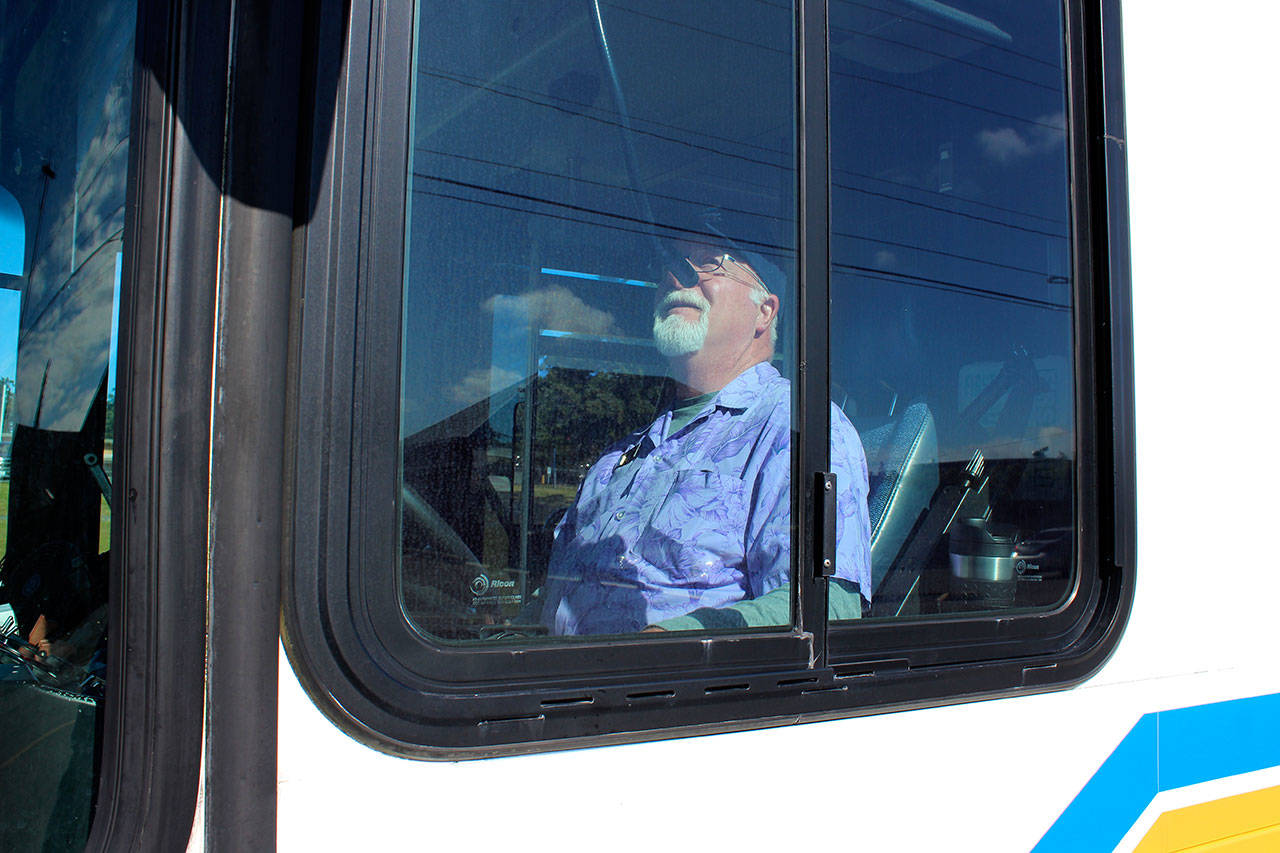Island Transit will not charge riders fares on its buses, with the exception of one Camano Island route.
Members of the Island Transit board voted 2-3 Friday against a motion to consider implementing fares. Island County Commissioner Rick Hannold and Oak Harbor Councilman Rick Almberg voted in favor of the motion; Island County Commissioner Helen Price Johnson, Langley Councilman Bruce Allen and Coupeville Councilwoman Jackie Henderson voted against it.
The vote reflects community comments about the question of whether the transit agency should start collecting fares on fixed and paratransit services. The agency gathered comments at meetings and online in the last couple of months. The majority of the 850 comments were from those who opposed to fares.
Island Transit Director Mike Nortier summarized community comments in a document that’s available at the Island Transit website.
“The broad themes included concerns over the loss of ridership, impacts to the environment, cost of collecting fares versus the revenue generated, impacts on vulnerable populations and operational scheduling impacts,” the summary states.
Island Transit projected an initial ridership loss of 30 to 40 percent with levels returning to current ridership in three to five years.
“Respondents expressed concern that the ridership loss may be greater than anticipated,” the document states, “and would result in a greater number of cars on the road increasing traffic congestion and greenhouse gas emissions, which run counter to the purpose and mission of public transportation.”
Island Transit has been fare free, with the one exception, since its inception more than 30 years ago. It is one of two transit agencies in the state that doesn’t charge fares. It is funded largely through sales tax and grants.
The issue of fares came to the forefront four years ago when Island Transit experienced financial problems and had to lay off staff and cut Saturday service. State lawmakers warned that state grants could be in jeopardy unless the agency started charging fares. State funding for service between Camano Island and Everett was contingent on the agency charging fares on the route.
Almberg said Island Transit is doing well financially because the economy is strong and gas prices are low, but that it won’t last forever. He said it’s better to implement fares and absorb start-up costs when the economy is doing well.
“It’s a lot easier to plan for difficult times during good times,” he said.
Price Johnson, on the other hand, explained her opposition to fares in an opinion piece for the South Whidbey Record. She pointed out that projections show that fares would generate about $200,000 a year, require $300,000 in one-time costs to implement and have over $100,000 in yearly costs. Under the best-case scenario, fares would account for only 2 percent of the annual budget after three years.
“In a time when affordable housing is scarce, housing costs are rising and working families are struggling, needlessly adding to the price of vital transit services is not the right thing to do,” she wrote. “Though there are political pressures to charge fares, there are not state requirements to do so. I’ve heard overwhelming concern from most community members about this big change for the agency and the environmental impacts it will produce.”



